I’ve been in Khartoum. I was there as President Trump announced the ban on travellers from 7 countries which included Sudan. The impact on morale (a week after the outgoing Obama administration had eased sanctions on the country) was palpable. Bans don’t hit the powerful they hit ordinary people with families overseas or like many I spoke to who visit the US for work or research.
a week on “Managing Knowledge in a Connected World”
So it was a poignant backdrop to the week long visit as part of the series of events “Managing Knowledge in a Connected World” I’d organised with the Sudanese Knowledge Society.
Those of you who follow the work I do might recall a change of approach this year. Included in a paragraph on my values and approach for 2017 I said:
I am counting my blessings and getting on with doing ‘stuff’ I think will make a difference in different parts of the globe and where less is definitely more.
This was the first opportunity where I felt my presence might act as a catalyst to advancing KM practice while providing encouragement and support. Sponsored by some of Sudan’s leading companies and universities and also the World Bank Group Sudan it comprised four main events:
- Workshop on Sudanese Internet Content — 28 – 29 January
- Forum on Knowledge Sharing — 30 January
- Masterclass on Knowledge Audits — 31 January
- Reverse Brainstorm Session on Virtual Work — 1 February

Khartoum International Airport
As with any visit where you are reliant on others to make arrangements there is an amount of trepidation as you step off the plane and enter the customs hall: will the person who is going to help me get a visa be there; will the authorities let me in?
After a short delay, while I negotiated with the immigration authorities over paying my ‘entry fee’ in Euros (which I had and they don’t accept) vs Dollars (which I didn’t have and they do accept), my welcoming party arrived to settle the entry fee and ease me through.

Corinthia Hotel Khartoum
I was excited by the prospect of returning to a country I first visited in 2010 and to a hotel (Corinthia) that remains an iconic structure in a prime position overlooking the Nile. My initial impression is Khartoum has changed little since I was there in 2013. It has a feel of Jeddah in the mid 80’s but with a few iconic structures.
The absence of cranes in sharp contrast to Dubai where I stopped en route suggests a country that is struggling economically due to the loss of oil revenues from the secession of South Sudan.
enriching Sudanese intranet content
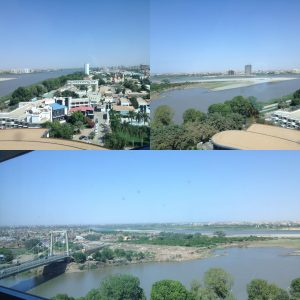 Day One/Two: Early morning in Khartoum is magical when you overlook the Nile and the view from my suite is amazing.
Day One/Two: Early morning in Khartoum is magical when you overlook the Nile and the view from my suite is amazing.
The call to prayer evokes a fond memory of decades of travel to the Middle East (and Arabic speaking Africa) and the mid to high 20’s temperature a welcome change from the grey cold that is the England I left behind.
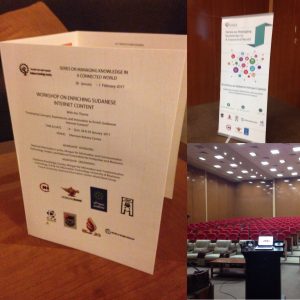 I was asked to give the opening Keynote at this event and to set the following two day’s of activities into context.
I was asked to give the opening Keynote at this event and to set the following two day’s of activities into context.
My laptop is not compatible with the projector despite having the adapter. As always I have backed up my work on DropBox and given secure access to Professor Gada Kadoda the driving force and inspiration behind the Sudanese Knowledge Society.
The two day event is predicated on the assumption that content is key to the success of a country and business. These points emerged:
- Information and Digital Literacy Skills are in short supply;
- Slow line speeds make uploading of content in a web based environment difficult;
- There is limited use of the internet in Sudan but everyone uses mobiles to connect with such as Facebook which is widely embraced;
- People don’t trust “Facebook News” (or any other) and there is limited content or data. But what there is people don’t know about;
- There is no recognised and agreed Arabic Natural Language Directory (the base on which software such as Artificial Intelligence might build); and
- There isn’t a culture of sharing (and storing) content in organisations.
creating a knowledge sharing environment: the role of HR professionals

DAM HR Forum
Day Three and the program shifts from strategic to operational. I am ‘booked’ for an evening with leading HR professionals. I begin by moving everyone around and asking them to make introductions. I repeat the instruction a couple of times. The third time I just ask them to move and the attendees naturally engage and answer the question, “what does KM mean to you?”
In plenary reflection they note how a neutral object (me) created an environment that broke down barriers enabling them to engage in a way they would have not done before.
Three hours fly by. The group has identified barriers to knowledge sharing and come up with a number of ways to overcome them. They leave engaged and animated at 10pm in the evening after I close with a few illustrations of what a Cheif People Officer who looks after the KM function does. Grateful thanks here to Penny Newman who answered a few questions from me prior to my visit to Sudan.
masterclass on Knowledge Audits: a practical guide

‘Room 1’ Proposed Masterclass venue
Day Four and I am up early to check whether the room we are going to spend a full day in is fit for purpose. As expected there are a few ‘niggles’ to be resolved but its so much better than the room originally allocated.
Theoretically Room 1 may have seated 20 but with no natural light and little space to move around it would have sucked all the energy out of the room.
14 turn up and all really engage as the feedback confirmed.

Actual Masterclass venue
“It was a wonderful opportunity to have participated in a such an informative session, I hope we could get more such opportunities.
I found your Talk and Master Class about KM and KA very interesting and informative.
Was delighted to be among the participants, thanks to Paul to be able to cover all this important material without us losing interest and enthusiasm. It is a novel and rewarding start that we will hopefully plan and implement at our different organizations.”
reverse brainstorm on working virtually

Graduate group in a reverse brainstorm session
Day Five was spent with the future leaders of Sudan and another 3 hour session with graduates and members of Education without Borders Sudan. After showing a few videos and slides about working virtually I asked the 65 people present to get into 6 groups of 10 and discuss what they could do to make virtual working fail. Though not much room to move about everyone jumped at the chance of getting into a practical exercise.
A couple of observations on the facilitation technique I used:
- Getting everyone’s attention is a challenge. This time if people didn’t ‘come to order’ quickly I made a point of asking the recalcitrant one’s what they were discussing pointing out to the room that often people carry on conversations because they are enthused.
- It’s good to share. The act of going round the room in a circular fashion to see what the other teams have done creates momentum and illustrates that its not just about your ideas. Some teams ended up using ideas from other teams in their final submissions.
- Voting (everyone has a sticky dot to place on the issue they think is most important) is a great hit and provides a visual image of how the room thinks
and finally
As is often the case you learn so much about a country and its people from its stories and proverbs. Having read a number before I left Gatwick I kept this in mind for all my sessions:
Our wasted days are the days we never laugh
After a week there and seeing how my visit served to pull many people together this one struck me as being apposite:
If you think you are too small to make a difference, try sleeping in a closed room with a mosquito.
And so to the title: if there is one abiding memory I took away its the resilience of the population and the young who have had so many doors slammed in their faces yet come back for more. I recall one moving story from a very bright and well qualified woman who was repeatedly told by big western institutions: “You are the perfect fit for the job and we’d hire you tomorrow if we could, we can’t, you have the wrong passport!” She is marooned in Khartoum unable to get a local job that fits her expertise and unable to leave!
Now onto the next ‘mission’ which is to Kuala Lumpur and a Masterclass on “Working smarter in a knowledge world: why space matters for collaboration, innovation and knowledge transfer” in conjunction with the International Islamice University of Malaysia. Much more on that next time.
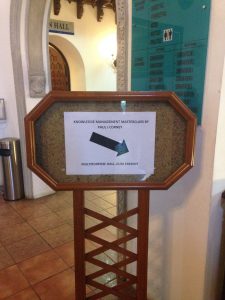 I am pleased to announce that at today’s Masterclass held at International Islamic University of Malaysia the delegates selected three ‘names’ from a metaphorical hat.
I am pleased to announce that at today’s Masterclass held at International Islamic University of Malaysia the delegates selected three ‘names’ from a metaphorical hat.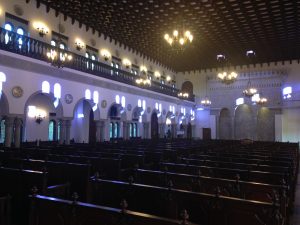
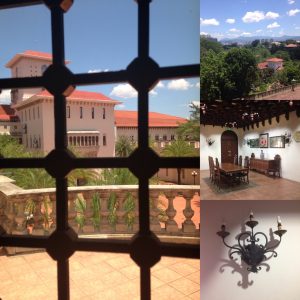


 As part of an enquiry into the Evolving Role of the Knowledge Manager my colleagues and I at Sparknow wanted to get KIM professionals to chart how their working life has changed over the decade. So we asked people at the Henley KM Forum to fill in a postcard to themselves to show what’s changed.
As part of an enquiry into the Evolving Role of the Knowledge Manager my colleagues and I at Sparknow wanted to get KIM professionals to chart how their working life has changed over the decade. So we asked people at the Henley KM Forum to fill in a postcard to themselves to show what’s changed.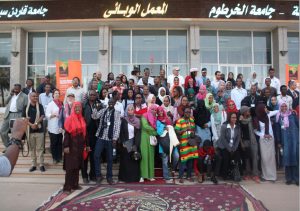 I was one of the speakers at the inaugural event in Khartoum of the Sudanese Knowledge Society in 2012.
I was one of the speakers at the inaugural event in Khartoum of the Sudanese Knowledge Society in 2012.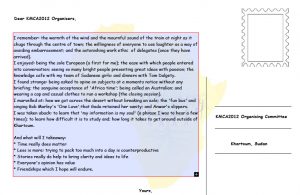 I found strange: being asked to opine on subjects at a moment’s notice without any briefing; the sanguine acceptance of ‘Africa time’; being called an Australian; and wearing a cap and casual clothes to run a workshop (the closing session).
I found strange: being asked to opine on subjects at a moment’s notice without any briefing; the sanguine acceptance of ‘Africa time’; being called an Australian; and wearing a cap and casual clothes to run a workshop (the closing session).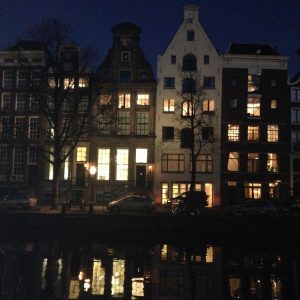 January in Amsterdam has become a bit of a tradition as is leading the opening session at KM Legal Europe.
January in Amsterdam has become a bit of a tradition as is leading the opening session at KM Legal Europe.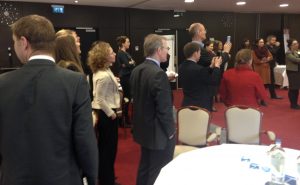


 Day One/Two: Early morning in Khartoum is magical when you overlook the Nile and the view from my suite is amazing.
Day One/Two: Early morning in Khartoum is magical when you overlook the Nile and the view from my suite is amazing. I was asked to give the opening Keynote at this event and to set the following two day’s of activities into context.
I was asked to give the opening Keynote at this event and to set the following two day’s of activities into context.



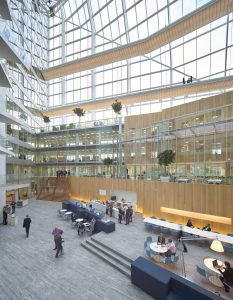
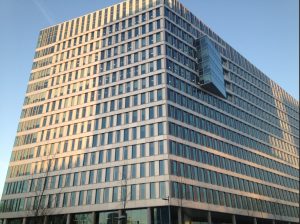 It is the forerunner of many such buildings and OVG are not resting on their laurels. Erik and his colleagues have far reaching plans to change the way buildings and those who inhabit them work.
It is the forerunner of many such buildings and OVG are not resting on their laurels. Erik and his colleagues have far reaching plans to change the way buildings and those who inhabit them work.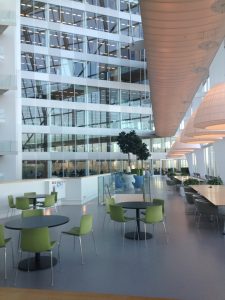
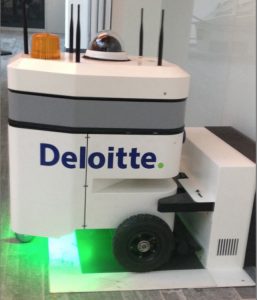 The building never sleeps: at night a robot patrols the ground floor obviating the need for on site security and maintenance.
The building never sleeps: at night a robot patrols the ground floor obviating the need for on site security and maintenance.